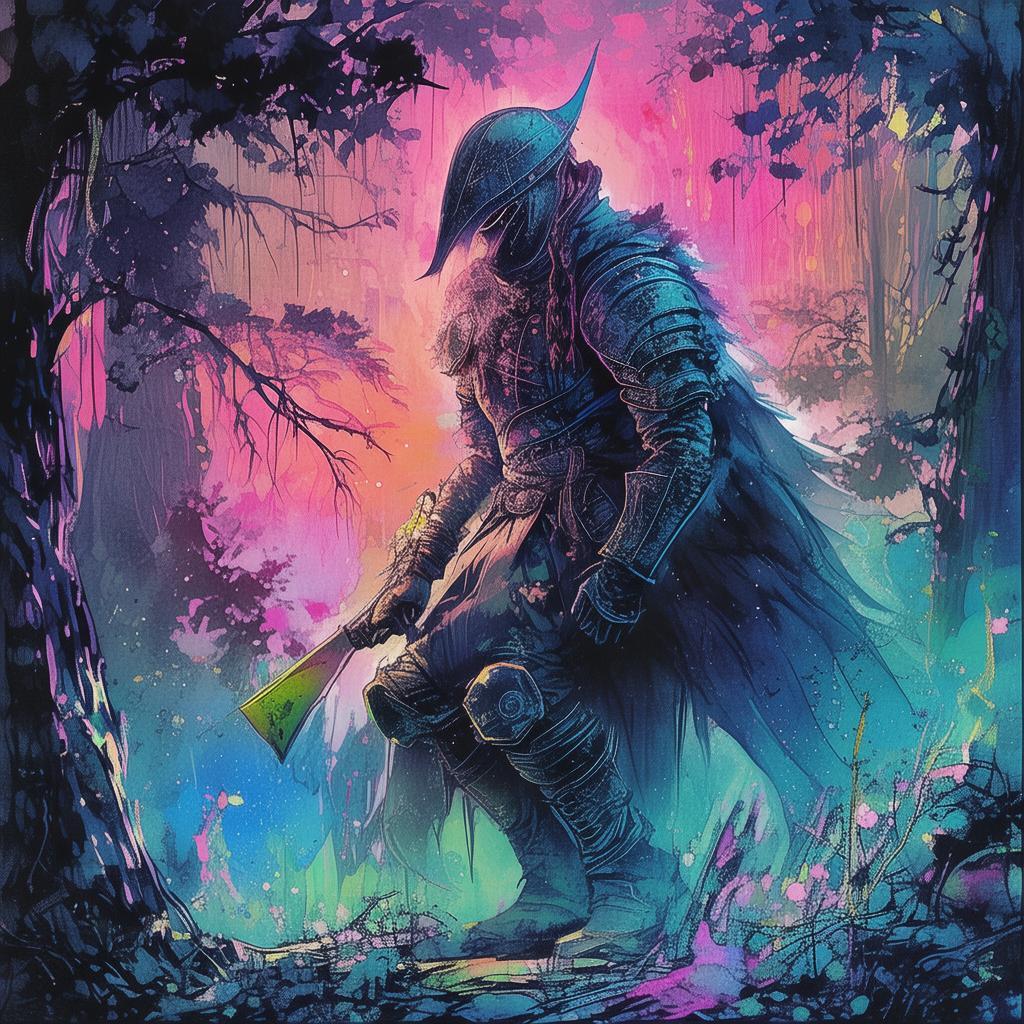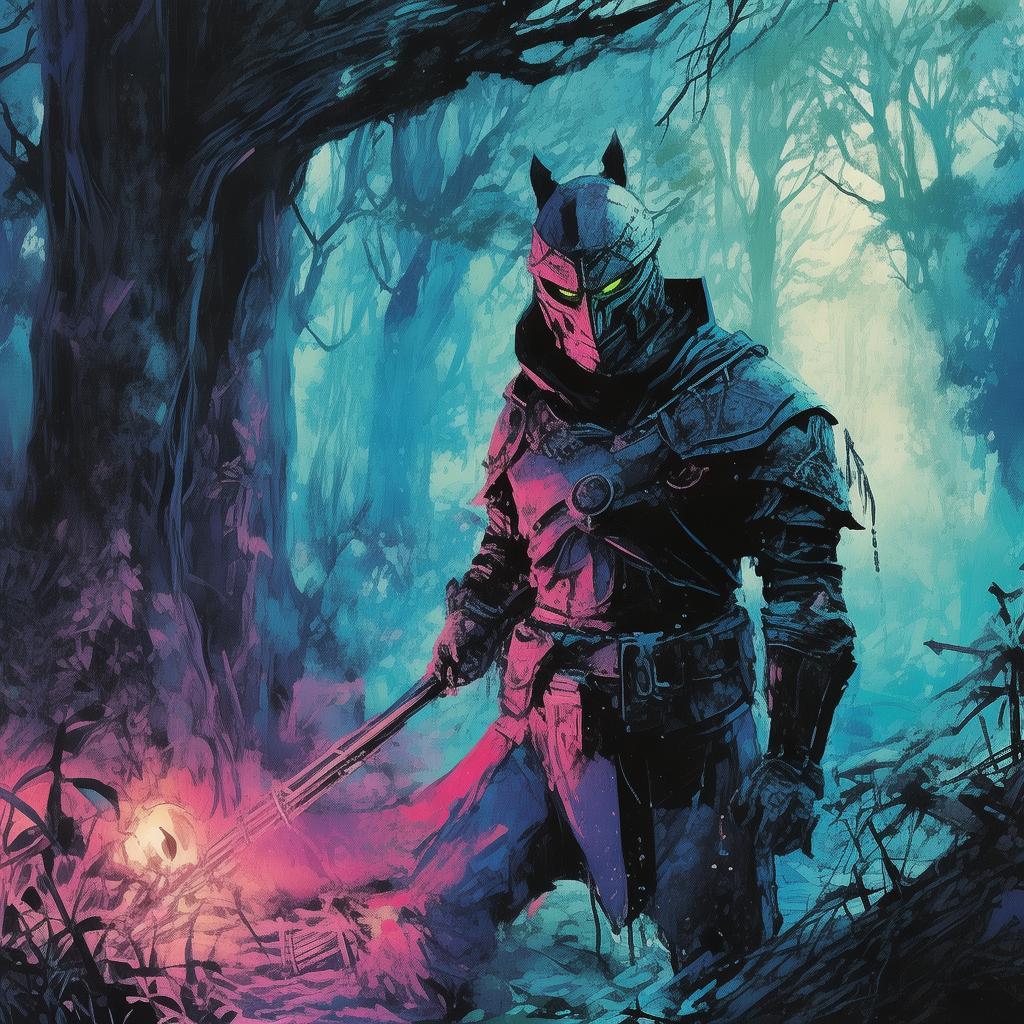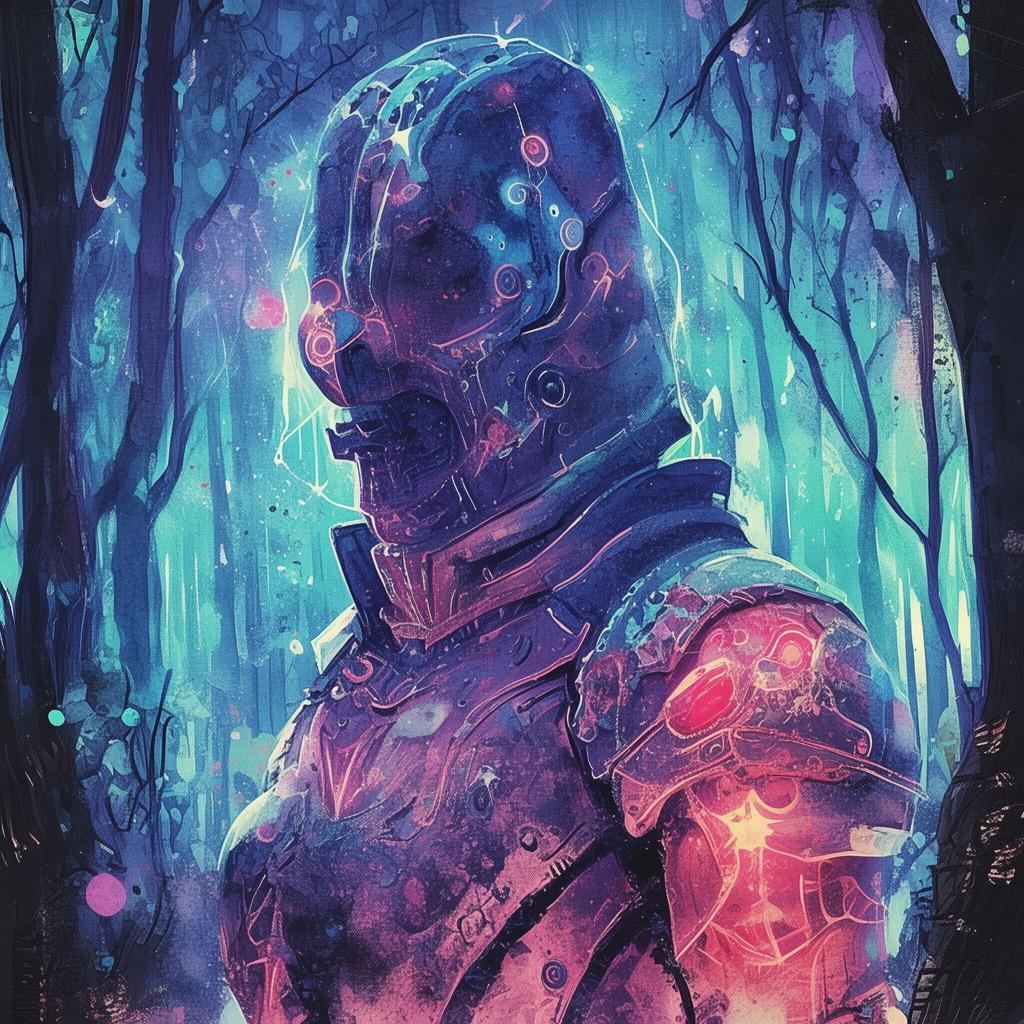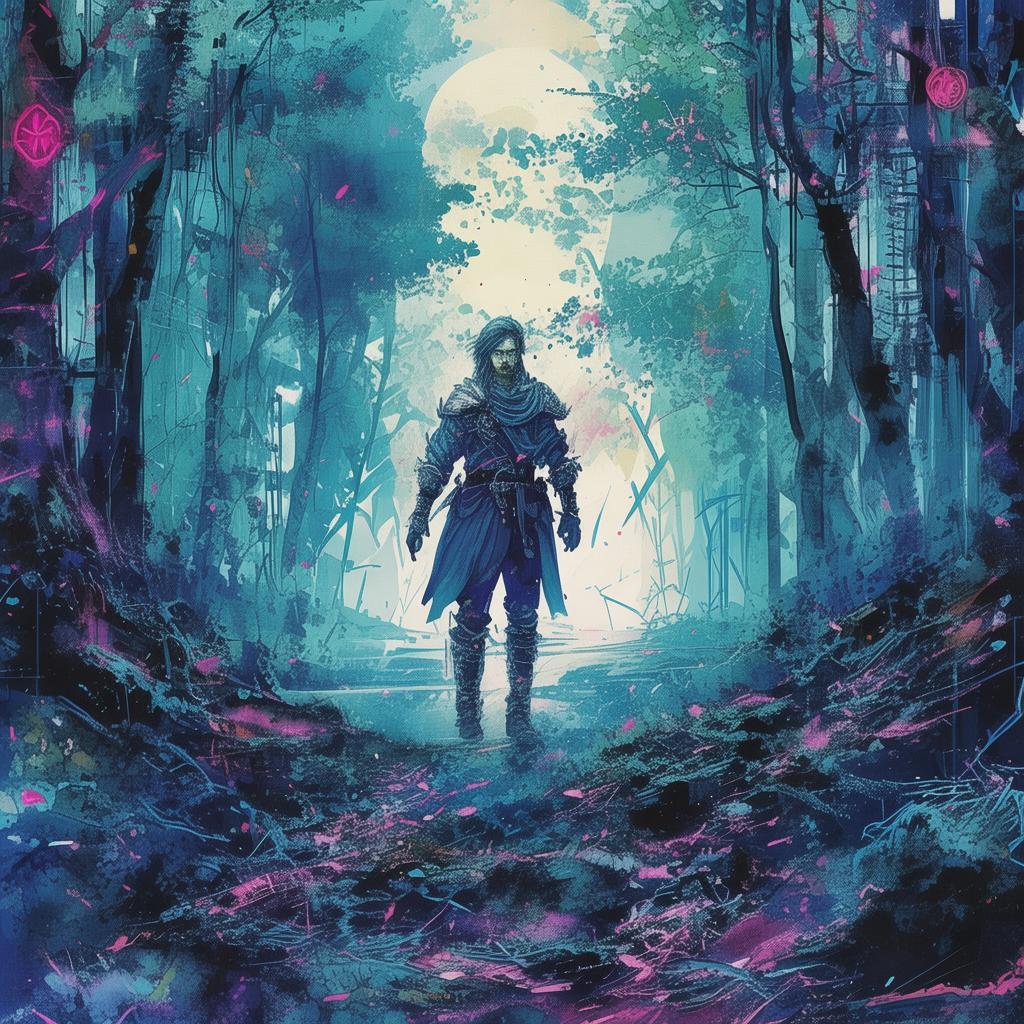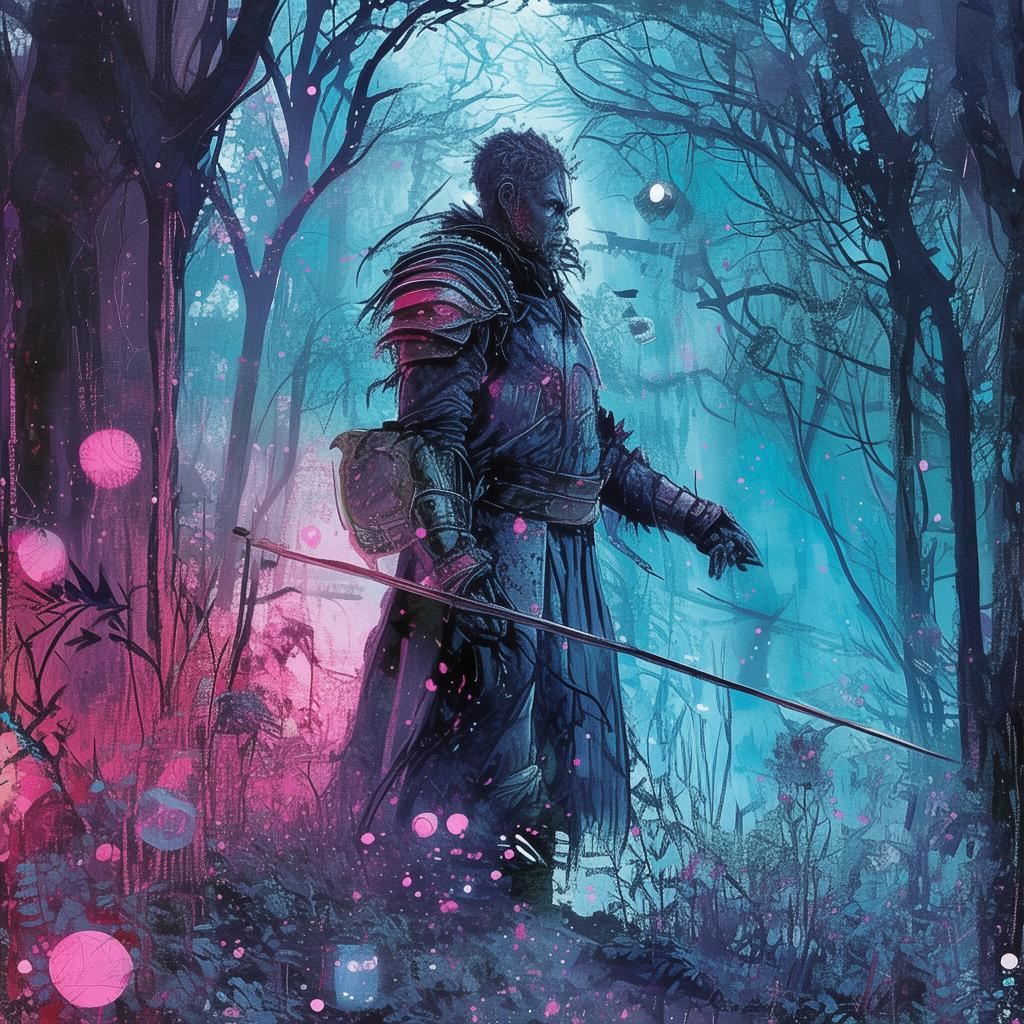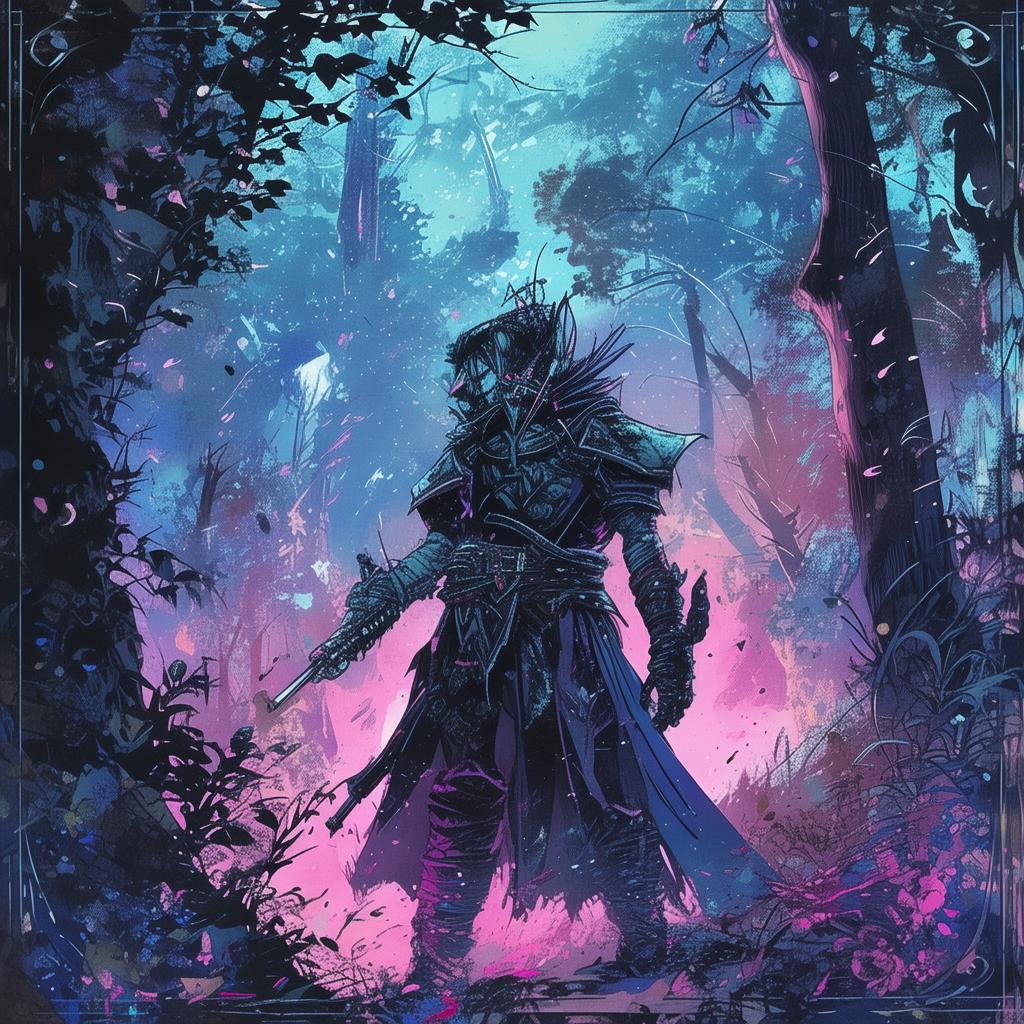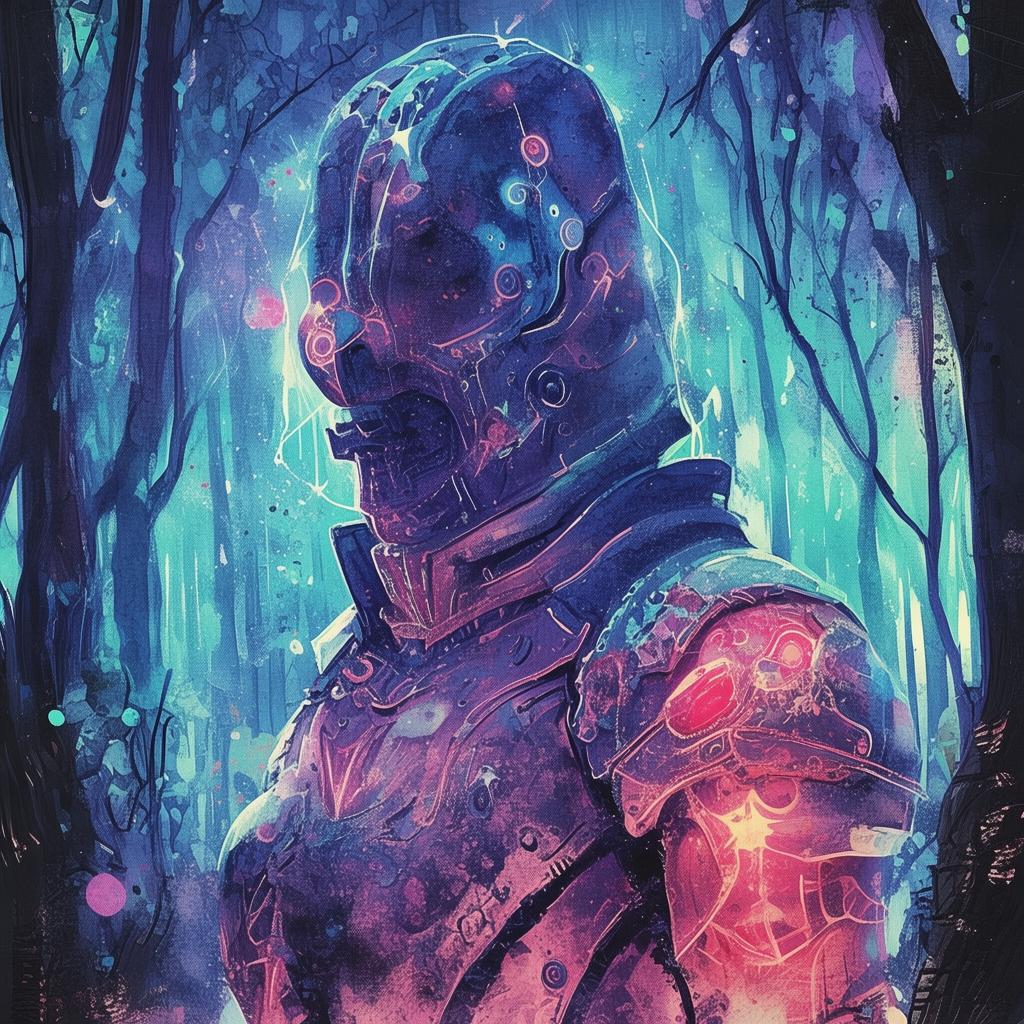Shadows of the Steppes: The Bard of the Sky's Whisper
In the heart of the vast steppes, where the sky stretched to infinity and the ground stretched beneath, there walked a man named Urgun. Urgun was not a warrior, nor a trader; he was a bard, a keeper of stories, a whisperer of the sky's tales. His voice was the melody that danced through the hearts of the nomadic tribes, his songs the very heartbeat of the earth itself.
The tale of Urgun's life was as vast as the steppes he called home, and it began on a crisp morning in the month of June, when the first thunder of the summer storm was felt on the horizon. Urgun was born into a family of bards, his father's voice as rich as the earth, his mother's as gentle as the wind. From his earliest days, Urgun knew the power of his voice, the way it could stir the soul and change the course of a man's life.
One day, as Urgun sat by the campfire, his father taught him the ancient song of the sky, a song that was whispered by the wind itself. "Listen to the sky, my son," his father had said, "for it knows the secrets of the world." And Urgun listened, his heart swelling with the words, and his voice resonating with the power of the universe.
But the steppes are a land of change, and soon after Urgun came of age, a shadow fell over the camp. A neighboring tribe, the Mongols, sought to conquer the land, and their leader, Khan Borjigin, was a man who did not take kindly to the nomadic way of life. Urgun's father, knowing the danger that loomed, sent Urgun away, to a distant land where the Khan's reach did not extend.
Urgun traveled for months, his heart heavy with the weight of his father's words and the promise of the song. He journeyed through deserts and mountains, crossing rivers and fording streams, until at last he arrived at a place called Kharakhorum, a city of great beauty and mystery.
In Kharakhorum, Urgun found a mentor in the great sage Tengri, who taught him the art of storytelling and the secrets of the sky. Urgun learned that the Khan Borjigin was not just a conqueror but also a man with a heart as vast as the steppes themselves. He learned that Khan Borjigin sought not only to conquer but to understand the world he lived in.
As Urgun grew in knowledge and skill, he felt the pull of destiny, the whisper of the sky that called him to Kharakhorum. He returned to the Khan's camp, his voice as powerful as ever, and his songs as captivating as the tales of old.
But Khan Borjigin was a man of many faces, and one of those faces was betrayal. When Urgun revealed his true purpose, to unite the tribes and protect the steppes from the Khan's ambitions, Borjigin's face turned to anger and suspicion. In a fit of rage, Borjigin had Urgun thrown into the desert, a place where the sky was vast and the wind was cold.
Urgun wandered for days, his voice weakened by the journey, his hope waning with each step. But as he reached the horizon, he saw a vision, a woman standing amidst the sands, her eyes filled with tears. She was Bortsetseg, a nomadic girl whose life was as wild and free as the wind that danced around her.
Bortsetseg took Urgun into her tribe, and there he found solace and strength. Together, they formed a bond that was as deep as the roots of the grasslands. Bortsetseg taught Urgun the ways of the nomads, and Urgun shared with her the wisdom of the sky.
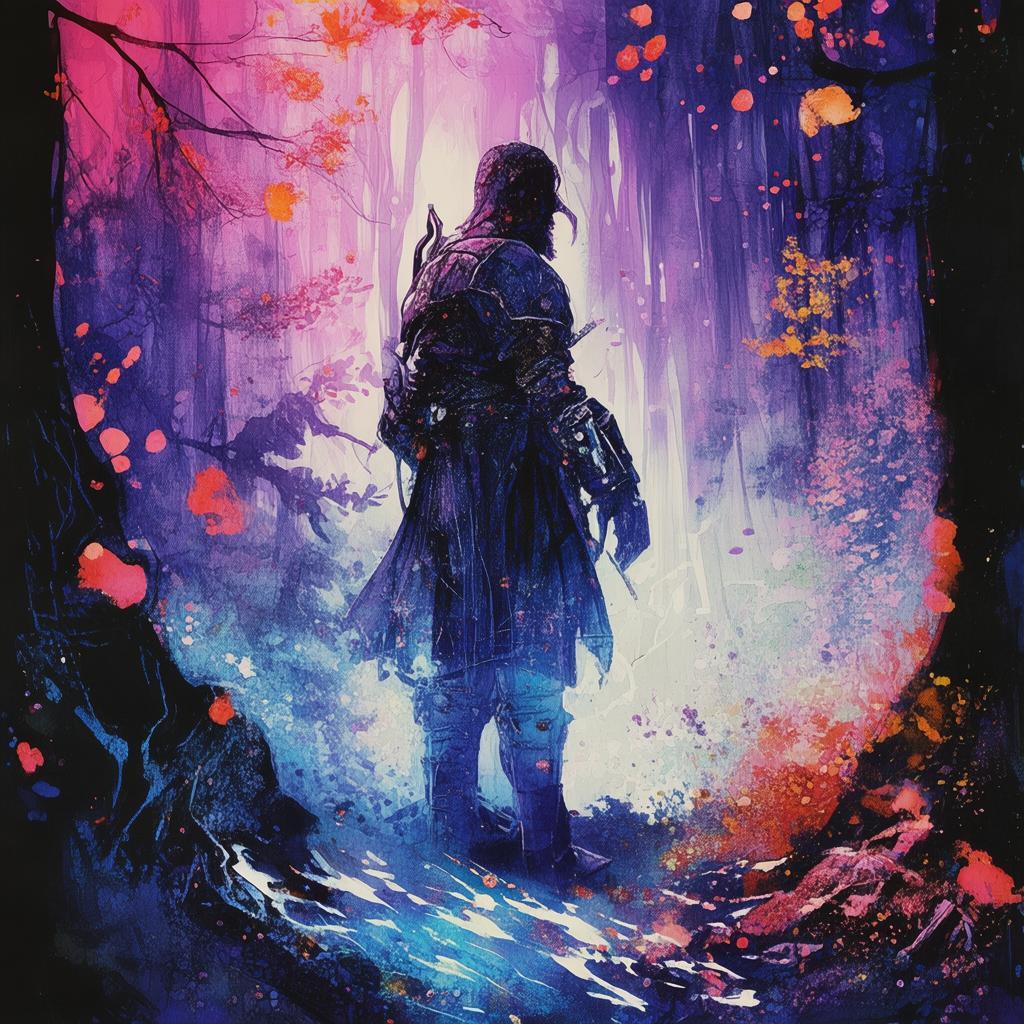
As the seasons changed and the sky whispered its tales, Urgun and Bortsetseg realized that their destinies were intertwined. They planned to unite the tribes and face Khan Borjigin together, but before they could embark on their journey, Bortsetseg was taken by the Khan, her heart broken and her spirit lost.
Urgun's heart was torn, but he knew that he had to carry on. He returned to Khan Borjigin's camp, his voice strong and clear, and his song filled with the promise of hope. He spoke of peace, of understanding, and of the beauty of the steppes that they both loved.
The Khan listened, and he was moved by Urgun's words. In that moment, Urgun realized that his destiny was not just to unite the tribes but to bring peace to the steppes. Khan Borjigin agreed to a truce, and the tribes of the steppes were no longer at war.
Urgun and Bortsetseg returned to their tribe, their bond stronger than ever. Together, they built a new camp, one that stood as a beacon of peace in the midst of the vast steppes. Urgun's songs were heard far and wide, and his voice was the whisper of the sky that brought hope to all who heard it.
And so, the tale of Urgun, the Mongolian bard whose voice carried the whispers of the sky, became a legend. His songs were passed down from generation to generation, and his name was spoken with reverence and respect. For Urgun was not just a bard; he was the embodiment of the steppes, a man who found his destiny in the whisper of the sky.
✨ Original Statement ✨
All articles published on this website (including but not limited to text, images, videos, and other content) are original or authorized for reposting and are protected by relevant laws. Without the explicit written permission of this website, no individual or organization may copy, modify, repost, or use the content for commercial purposes.
If you need to quote or cooperate, please contact this site for authorization. We reserve the right to pursue legal responsibility for any unauthorized use.
Hereby declared.


